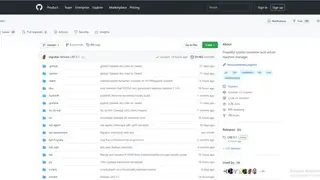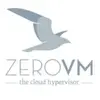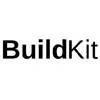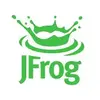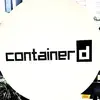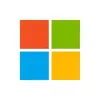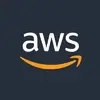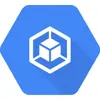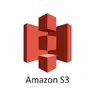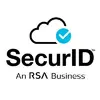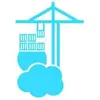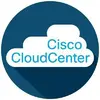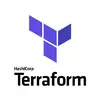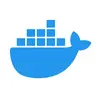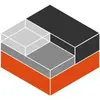
LXD
LXD is an advanced-level system container software that allows you to manage all your physical and virtual machines in an effective way and it is majorly compatible with the Linux operating systems. It is designed to offer you a large number of images as it is image-based software and you can even enhance its scale based on the upcoming or future requirements. You can easily and securely store all the images in its database and seamlessly manage the instances with the help of the command-line tool.
It is a lightweight software and you can easily integrate this software with your systems. Moreover, you can get complete support to manage the containers as well as virtual machines. It uses the hardware in case of running the machines in a virtual capacity. Hence, LXD is good and secure software and permits you to effectively manage the machines.
LXD Alternatives
#1 Podman
Podman is an advanced-level software solution that is used to manage the containers, and pods along with the container images in an effective way, it is compatible with Linux operating systems but you can also use this software on other operating systems. This software is designed as the rootless and it is one of the daemons less software. It allows you to manage the various pods through the command line interface and permits you to manage the containers without any roots.
It is a lightweight software and it works seamlessly and effortlessly in low space or memory. Moreover, it comes with a podman build command that you can use to manage and build a large number of images. It integrates with all the systems is quite simple and fast. Hence, Podman is the ideal container management in its category and offers you amazing features.
#2 Microsoft Azure Container Registry
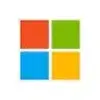
Microsoft Azure Container Registry is an advanced-level and intelligent container management software solution that helps you to handle, control, manage, view, and transfer the pages of the container and allows you to successfully handle the workloads of the containers. It comes with a geo-replication option that enables you to run a single and basic registry across the many platforms or regions. You can seamlessly include the helm charts and it is also compatible with the formats based on the artifact.
The best feature of this software is that it allows you to include the images easily and is able to schedule the task for the whole team. Moreover, you can provide the access to your team members based on their roles and responsibilities. Hence, Microsoft Azure Container Registry is a comprehensive and complete software that allows you to manage the container registry in an effective way.
#3 Apache Mesos

Apache Mesos is an AI-based advanced-level resource and cluster management software solution that allows you to collect the data from various physical or virtual machines such as storage, server, memory, CPU, etc., and seamlessly manage the entire cloud-based storage as well as datacenter. It allows you to personalize its features as it is an open source solution and written in C language. You can successfully increase the scale of this software up to 10,000 nodes.
It effectively launches the containers based on the Appc images as well as Docker. Moreover, you can easily isolate the resources because it is supported by first-class isolation. It comes with HTTP APIs that enable you to deal with clusters and view their operations. Hence, Apache Mesos is a suitable option because of its customizable features and you can easily implement this software in your systems.
#4 Crane
Crane is a web-based application that allows you to manage and handle the container images and offers you the amazing option of a pre-built image container. It allows you to inspect the images and provides you with a comprehensive overview of the images which enables you to reduce the size of images. You can easily customize its features as it is an open-source application and its codes are available on the internet. It permits you to manage and handle your remote credentials and other tokens successfully.
It easily secure all your credentials and offers you a simple and user-friendly graphic user-interface. Moreover, you can seamlessly manage and operate the images from any remote location and even transfer the images from remote location to PrimeHub. Hence, Crane offers you easy and straightforward features and the perfect options in its category.
#5 CRI-O
CRI-O is an AI-based advanced-level container management software solution that allows you to optimize your system Kubernetes and permits you to conduct the various tests related to these Kubernetes. It helps you to implement the CRI-based Kubernetes in a good runtime. This software successfully supports the open container initiative images which it successfully pulls from various container registries. You can access its various containers such as red hat, Intel, SUSE, hyper, IBM, etc and it works effortlessly due to its lightweight features.
It is open-source software and you can easily find its various components in different repositories on GitHub. Moreover, its various components are compatible with OIC runtime, storage, containers, container image, networking, monitoring, and many others. Hence, CRI-O is a perfect option due to its comprehensive and wide features and tools.
#6 ZeroVM
ZeroVM is an open-source application that is used to monitor and visualize the different projects based on Chromium Native Client and helps you to view every single process at a time. It is based on sandbox technology which is why it uses a simple process to create the sandbox effectively. You can even personalize its features based on your requirements and needs as it is a cloud-based app and its codes are available on various GitHub repositories. It is majorly compatible with Linux operating system and it is written in C language.
It offers you the option of OpenStack for the effective storage of components as it is also integrated with the Swift. Moreover, you are required to remain connected with the sandbox to access the files from the local channels. Therefore, ZeroVM is a perfect option in its category because of its complete and easy-to-use features.
#7 BuildKit
BuildKit is an open-source toolkit manager application that allows you to build the artifacts in a minimum time frame and helps you to gather the garbage automatically. It comes with advanced-level frontend formats which you can easily extend based on your requirements and needs. You can use this application to build the cache files which you can even export as well as import. It allows you to develop multiple job invocations which are completely nested.
It permits you to customize its features and tools as it is an open-source application and its codes are easily available. Moreover, you can seamlessly execute the work without the root attachments. This app works effortlessly in low space and offers you an interface that is user-friendly and robust. Hence, BuildKit is a good app to manage and use the toolkit in an effective way and offers you a wide range of features to execute the work.
#8 Buildah
Buildah is a web-based OCI container tool that allows you to manage the wide range of images in your OCI container and helps you to build the image container from the scratch. It allows you to create the images from the container as well as Docker files. You can use this tool to build the image in any format such as OIC format or Docker format. It permits you to mount as well as unmount the root file system of the containers.
This tool allows you to change or alter the name of the local container. Moreover, it permits you to delete the containers along with the images anytime you want. Hence, Buildah is a simple and easy-to-use tool that enables you to manage the OIC container images in the best possible way.
#9 Artifactory Docker Registry
Artifactory Docker Registry is an advanced-level and cloud-based software solution that allows you to manage all your Docker images in the best possible manner and it permits you to execute an unlimited number of the Docker registries. This software allows you to handle the local as well as virtual Docker registries and offers you a transparent view across all the registries. You can use this software to control and define the wide range of registries and provides you with complete control to manage all the Docker images. It permits you to transfer the images from the local registry to the cloud-based registry in a protected and secure way.
It also supports the OCI clients as it is based on OCI compliance and allows you to deploy seamlessly all the OIC images in the registry. Moreover, you can increase the scale of its registry based on future requirements and easily access its features. Hence, Artifactory Docker Registry is a perfect option in its category and gives you complete control to manage the Docker images.
#10 RunC
RunC is an open-source container management CLI tool that allows you to spawn, run, and monitor the containers and it is compatible with the Linux operating systems. It helps you to transfer the images from any local container to the virtual environment and you can easily store the images in its database. You can seamlessly change and customize its features as it is a cloud-based tool and its various codes are available on GitHub.
It comes with a simple and user-friendly interface that enables you to access all its options and tools. Moreover, it is a lightweight tool and it does interrupt the working of your operating system. You can easily integrate this tool with your process and even view the images from any location. Hence, RunC is a simple and complete tool that enables you to deal with the CLI containers in the best possible way.
#11 Dockercraft

Dockercraft is a simple and open-source application that allows you to manage and view the Docker client based on Minecraft and offers you the tools to manage the Docker container effectively. It gives you complete control to view inside the Docker Machines and seamlessly supports the various Docker commands. You can use this application to attach a number of links and you can even transfer the images to any virtual environment.
It allows you to personalize its features as it is an open-source app and you can also manage the Docker volumes. Moreover, it permits you to handle the Docker networking and you can also display the logs easily. Hence, Dockercraft is an easy-to-use app that is used to monitor Minecraft Dockers easily.
#12 Containerd
Containerd is an advanced-level container software solution that allows you to reduce the runtime and it is compatible with the Linux as well as Windows operating systems. The software allows you to manage the complete lifecycle of the containers and offers you the access to store the images effectively. It allows you to execute the images from the container and enables you to transfer the images from the local container to the virtual environment effectively.
The best feature of this software is that it seamlessly supports the OCI images and allows you to manage the OCI runtime. Moreover, you can effectively pull as well as push the images from the container and view the whole lifecycle of the container. Therefore, Containerd is a good option in its category and allows you to manage the runtime in an effective way.
#13 Rkt

Rkt is an open-source CLI-based application that is used to run the containers on your Linux operating systems and offers you secure and protected features. It effectively links the various resources together and enables you to generate a self-contained environment. You can easily access its various security features such as SELinux, TPM measurement, and many others. It comes with the simple and robust interface and you can easily access its features.
It is an integrated application and you can also access its different orchestration tools which also have the capability to execute the engines. Moreover, you can personalize its various features as it is an open-source app and its codes are easily available over the internet. Therefore, Rkt is a simple and basic app that offers you to run the containers and manage the runtime.
#14 Skaffold
Skaffold is an open-source application that allows you to develop the local-based Kubernetes with a simple and reliable tool. It comes with simple components and gives you the simple operations to maintain your clusters. You can use this app to share your projects with anyone across the globe and it allows you to develop a complete profile. The best feature of this app is that it enables you to develop the proper environment by configuring the profiles, different environmental variables, flags, and many others.
It allows you to access the images which are policy-based and you can even synchronize the files easily. Moreover, it comes with the optimized loop and provides you with complete feedback in the developing phase. Hence, Skaffold is a perfect option in its category and allows you to develop the Kubernetes quickly.
#15 Azure Container Service
Azure Container Service is a service that allows the developer to deploy containers on the Microsoft Azure public cloud without managing the underlying infrastructure. It is a cloud-based service that helps the IT departments to upload, organize, scale, run, and manage the container with container-based virtualization. To run the azure container service simply click on resource group then my resource group and in the end navigate the cursor to mycontainer.
The best part of using this platform is that it is lightweight, faster, and easier to manage and may phase out virtual machines in common scenarios. Azure Kubernetes Services can easily be deployed by using this platform. It has the ability to run containerized web apps on Windows and Linux operating systems. Users will also be able to launch containers with hypervisor isolation by using this platform. It allows the users to accelerate containerized application development without compromising security.
#16 IBM Bluemix Container Service
IBM Bluemix Container Service is a cloud-based service that allows users to run, deploy, and manage the applications of the cloud. It supports seamless integration with DevOps and may support several programming languages. It ran on the basic infrastructure of SoftLayer and support the programming languages of Java Node.js, Go PHP, Python Ruby, and many more. It provides the services of Mobile Testing, Manual Cross Browser Testing, Beta App Testing, BYOD, Mobile Development Management, and many more.
It offers training in the form of documentation, webinars, and videos. Agile Transformation and consulting can also be possible by using this platform. Product Consulting and implementation play an important role in their development. It includes the features of DevOps Intelligence, Deployment Automation, Application Development, GovCloud, Manual Browser Testing, Mobile Device Management, and many more. It supports seamless integration with AWS, Azure, Bamboo, BizTalk Server, and many more.
#17 Jelastic Multi-Cloud PaaS

Jelastic Multi-Cloud PaaS is another fabulous platform that allows developers to run their enterprise applications in the cloud. It includes multiple private, public, and hybrid cloud options in order to fulfill the demands of different enterprises. It also supports multiple programming languages like Java, PHP, Node.js, Ruby, Python, and many more. It is available in more than 100 data centers and supports high availability in different geo-distributed regions. It allows the users to automate the installation, scaling, and updates of elastic Kubernetes clusters as per their pricing models.
It supports zero code change deployment of different traditional and cloud-native applications. Unified management through the intuitive user interface, SSH access, CLI, and API can also be possible by using this platform. Users will be able to automate vertical and horizontal scaling with tunable load alerts by using this platform. It has built-in auto-clustering features for different databases and application servers.
#18 Amazon Elastic Container Service (Amazon ECS)
Amazon Elastic Container Service (Amazon ECS) is the container management platform that allows the users to run, stop, and manage all the containers on a cluster. It is helpful in running the individual tasks within a service. It is a fast and highly scalable container management service that let the users easily run applications on a managed cluster of Amazon Elastic Compute Cloud instances. It has a user-friendly interface that is easy to deploy, manage and scale containerized applications.
It is a cloud-based application that can easily be used from anywhere worldwide with strong internet connections. It supports batch processing and allows the users to plan, schedule, and may execute batch computing workloads over the AWS services like Amazon Elastic Compute Cloud (EC2), Faragate, and Spot Instances. It is equally beneficial in building, monitoring, and deploying the applications with the container.
#19 AppFormix
AppFormix is the container management software that allows the users to run on any public, private, multi-tenant, or hybrid environment. It is useful to control and visualize the things that how infrastructure is being utilized depending on their workloads, and plans. It has the ability to monitor the performance of the application after a specific interval of time. It allows the operators of software data centers to ensure visibility into operational performances and infrastructure resources. The product module may consist of operations analytics, state-driven orchestration, self-service monitoring, and many more.
It provides the services of advance monitoring, scheduling, and performance management for its software-defined infrastructure. The lifecycle of containers and virtual machines is much shorter than in traditional development environments. It is equally beneficial in improving cloud orchestration, security, accounting, and planning of the systems. It has a user-friendly interface that is easy to use and is fully customizable.
#20 Red Hat OpenShift Container
Red Hat OpenShift Container is a cloud-based platform that allows users to build and deliver applications faster than others. It is the consistent hybrid cloud foundation that helps the users in building and scaling containerized applications. It is useful in delivering business-critical applications in order to migrate the existing workloads to the cloud. It has a user-friendly interface that is flexible to use and is helpful in moving the application code to the container.
It supports seamless integration with Knative, cloud service, and streamlined services. It allows the users to manage and view all the clusters across multiple deployments. It offers training in the form of documentation, webinars, and videos, It provides customer support 24/7 and the best part of using this platform is that it can easily manage the complex environment with its award-winning support, training, and consulting services.
#21 Apprenda
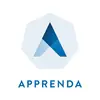
Apprenda is the cloud-based application for the Cloud Native and Existing applications. It helps the IT team to create a Kubernetes-enabled shared service on the infrastructure and may offer the developers to use it on different business units. It is helpful in modernizing the traditional workloads and may support the entire custom application portfolio. It has the ability to rapidly build, deploy, run, and manage cloud-native microservices across different applications.
It plays an important role in the migration of existing workload applications to cloud-native applications. It is helpful in auto-scaling, multi-tenancy, logging, monitoring, metering, and many more. The best part of using this platform is that it is helpful in transforming the apps to web-scale and may leverage the existing infrastructure. It supports automated workloads placements and may enhance agility in a short interval of time. It plays an important role in achieving auto or scheduled elastic scaling.
#22 Platform9 Managed Kubernetes (PMK)
Platform9 Managed Kubernetes (PMK) is an easy-to-use platform that helps users to manage all the complex Kubernetes needs anytime and from anywhere worldwide. It has a user-friendly interface that is flexible to use and is responsible to provide fast, frictionless, and maintenance-free services. It is a cluster management system that supports seamless integration on public clouds and on-premises networks. It has the ability to deploy the cluster instantly within 5-minutes on laptops and on-premise servers.
It is simple to use and is helpful in managing the clusters. It allows the users to focus on applications and make control every aspect of cluster management in an efficient way. It supports seamless integration with the existing tools and SSO providers. Users will be able to deliver production-grade Kubernetes at a large scale along with their features and integrations by using this platform. It includes the features of CI/CD, Web Application, Machine learning, Retail Edge, 5G Edge, and many more.
#23 Giant Swarm

Giant Swarm is the cloud-native platform that allows the users to install, configured, secure, and work seamlessly and reliably. It is best known because of its Velocity, Efficiency, Agility, Scalability, and many more. It supports API integration and its typical customers are Small Businesses, Mid-Size Businesses, and Large Enterprises. It allows the users to accelerate the cloud-native journey and may offer a fully managed, open-source Kubernetes platform with its support.
It offers training in the form of documentation, webinars, and videos. It let the users give everyone the power and freedom to build their own modern software. It is equally beneficial in scaling Kubernetes clusters on-premises and in the cloud along with their relevant managed services in order to run Cloud Native applications. It is being used by all the leading enterprises to containerize the microservices into production. It has the ability to remove the tasks related to managing the complex underlying infrastructure.
#24 Google Container Engine (GKE)
Google Container Engine (GKE) is the full-featured Kubernetes service provider that provides a managed environment for multiple purposes of deploying, managing, and scaling by using Google infrastructure. It is helpful in making the application packaged platform more independent at isolated user-space instances. For example, using Dockers in GKE and Kubernetes is helpful in determining whether the application is work-loaded or not.
It is easily managed by Google Site Reliability Engineering and also ensures that whether the cluster is up-to-date or not. Its typical customers are Small Firms, Mid-Size Businesses, and Large Enterprises. It is basically a management and orchestration system for Dockers that may run within Google public clouds along with their clusters. It is a free and open-source container management system that is based on Kubernetes. Its free trial is available with limited features and it includes the service charge of 0.10 USD per cluster per hour.
#25 Kublr
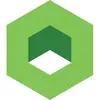
Kublr is an enterprise-level solution for managing Kubernetes clusters and container orchestration installations. It is the simplest method to get Kubernetes up and run-on devices, clouds, or on-premise private clusters. It allows users to confidently deploy, manage, and grow container workloads across various environments. It is helpful in eliminating the need to spend time on Kubernetes installation, upgrades, and management. It provides a full lifecycle management solution that keeps clusters up to date and secures at all times.
Additional features include a self-hosted, web-based user interface and flexible LDAP and Active Directory connection. It’s a simple, powerful, and secure module that allows developers to set up, execute, and manage containerized apps in Kubernetes clusters with maximum flexibility. Furthermore, the service offers a wide range of features and capabilities, ranging from integrated monitoring to comprehensive network administration, all of which are enhanced by the default sources.
#26 Sloppy.io

Sloppy.io is the full-featured Docker hosting platform that offers the container and Microservices in a DevOps way. It allows the users to start the Docker container within seconds. It provides a fast, simple, and secure method to handle the complex docker hosting. Containers have swept the software industry, but with good cause. They have been shown to be essential for DevOps deployment, and developers may use them in a variety of ways. As compared to Virtual Machines, it requires fewer resources to deploy quickly, and scale easily.
Docker is proved to be the best choice for agile projects, products, and businesses. It is equally beneficial in solving complex networks and works best for overlay networks, storage providers, and ingress controllers. Infrastructure for hosting can easily be managed for Docker container and is helpful in securely connecting the container with the users and may reliably store the data. Deployment can easily be monitored through their web-based user interface, command-line tools, and API.
#27 Google App Engine
Google App Engine is a free tool for mounting and hosting web applications in Google-managed data centers. It offers fast development and deployment, simple administration, no need to worry about hardware, patches, or backups, and easy scalability. It is a platform for building adaptable web applications and portable backends. This platform features inherent administrations and APIs, for example, NoSQL datastores, Memcache, and a client verification API.
With inherent administrations, for example, load adjusting, wellbeing checks, and implementation logging, you can convey the web and portable applications much quicker. Without much of a stretch, you can set up, run, plan, and oversee security filters from the Google Cloud Platform Console. Its Application Engine works with famous improvement tools, for example, Eclipse, IntelliJ, Maven, Git, Jenkins, and PyCharm.
#28 AWS Elastic Beanstalk
AWS Elastic Beanstalk is an amazing tool to scale different web applications based on .NET, Java, Node.js, PHP, Go, Docker, Ruby, and Python. This process will be done on just a few of the top servers like Nginx, IIS, Apache, and Passenger. All users need to upload the program code on this platform and leave the rest to it.
The best thing about this platform is that it does not charge you for its services. This is the best platform for even beginners towards apps deployment. Even users need not restructure the code or build up infrastructure before using the code because all of this process will be done right here without requiring the user’s involvement.
#29 Amazon S3
Amazon S3 or Amazon Simple Storage Service is a cloud computing web service introduced by Amazon Web Services. It is designed to deliver 99.99% durability and store data for millions of worldwide applications that market leaders in every industry use. The platform provides comprehensive security and compliance capabilities that meet the most stringent regulatory requirement. It gives customers flexibility in managing data for cost optimization, access control, and compliance.
Customer data is redundantly stored across multiple facilities and multiple devices in each facility. Amazon S3 includes core features such as authentication to keep data secure, AWS calculator, free inbound data transfer, pay-per-use, etc. It offers secure storage as it supports data transfer over SSL and automatic data encryption once it is uploaded. With the help of this platform, the customer can also configure bucket policies to manage object permissions and control access to their data using AWI identity and access.
#30 RSA SecurID Access
RSA SecurID Access is an enterprise-class authentication software that utilizes businesses context, threat intelligence, and identity access to overcome traditional access and identity management limitations. It is inclusive software that combines identity governance, risk-based management, user lifecycle management, and much more. It is a comprehensive solution that provides complete access and identity assurance to thwart attackers at every turn while providing a seamless access experience to authentic users. The software allows you to leverage identity analytics in real-time to identify when step-up is required.
Overall, RSA SecurID Access is one of the best authentication software as compared to the others. It permits you to authenticate users using the popular methods that are most convenient for users and most secure for your business. A unified authentication strategy allows users to govern access to all the critical corporate recourses for all users from any device hosted within or outside your network. To make it more secure and powerful, it also offers prominent features such as multi-factor authentication, advanced mobile authentication, role management, advanced reporting, access control, and standards-based connectivity, etc.
#31 Apache Karaf
Apache Karaf is a lightweight, modern, and polymorphic container powered by OSGi. It is a powerful solution and hosts different applications, including OSGI, WAR, Spring, and much more. This solution can be used as a standalone platform in bootstrap using the Karaf Boot. It is a leading platform that focuses on your business code and applications. It comes with all the major features such as console, remote access, hot deployment, dynamic configuration, etc. It also offers lots of additional features like clustering, alerting application repository, and complete monitoring.
A professional team uniquely creates each feature on this platform by delivering something new and more exciting. One of the best things about this platform is that it is a cloud-based or on-premise solution that means you can run it anywhere using its distribution. Furthermore, Apache Karaf offers rich security features and supports a complete RBAC system for shell commands and JMX objects to make it a comprehensive solution. Therefore, you can easily and directly use this security layer in your own applications.
#32 Portainer
Portainer is a port management software that helps businesses in building and managing their docker environments easily. The platform is completely free and comes with a low cost-in-app subscription through which users can add various toolsets to their software. It offers a development team that helps the users in their container journey and ensures that the user’s critical docker environment remains available.
Portainer comes with an easy deployment feature and helps in the management of networks, volumes, and images. It allows the users to skips up the learning curve and enables the users to get their docker environments running instantly.
Portainer comes with an extensive software along with its community that managers clusters and provisioning of containers. It offers registry management, external authentication, role-based access control, and many other features. Lastly, it provides business support to users in different formats to help them in managing and running their docker environments.
#33 Cisco CloudCenter
Cisco CloudCenter is an application-defined cloud management solution for deploying and administering applications around data centers and public and private cloud resources. It is designed to help modernize and automate your data center or add public cloud application deployment to your service offering. It introduces core functionalities and key features that automate multi-cloud workload deployment, increase features velocity and optimize cloud service consumption to reduce risk and cloud costs.
Cisco CloudCenter has a simple dashboard uniquely created by a professional team and includes all the core features of all sizes of businesses. It allows you to use one automation artifact to deploy to multiple cloud or data center environments and the abstract cloud APIs. It includes a mix of virtual, PaaS, or cloud-specific services, making it better than others. CI.CD and DevOps extension, cost optimization, multi-cloud consume, simple dashboard, and all the advanced tools are also software features. It offers different price plans; each plan has its own cost and core benefits.
#34 Resin.io
Resin.io is a software that gives you several modules to integrate with your devices. If you need a program to run your IoT device, you will probably need this platform because it will give you the infrastructure, develop, deploy, and manage the fleets of connected devices at scale. It has a sophisticated interface and provides fleets of its own.
The system is intuitive and provides various functionality for the user to integrate into their devices. It also solves problems so you can focus on working and not the infrastructure. Resin.io is open-source software; it works on every operating system, and give you a cloud-based module.
The main features include a flexible and configurable dashboard that gives you the opportunity of integrating your component on the system built for a container that power Linux container. It also optimizes to provide you with a multi-face project module that supports many devices, network, and setups, provides you with security by design, keeps you regular, reliable, and valid update.
Resin.io also gives you a feel of testing a feature that provides you with an article reporting on the earth testing module before deploying any application. The interface is user-friendly and consists of a sophisticated layout that has guided structure for the user do not get lost.
#35 Microsoft Azure Functions
Microsoft Azure Functions is a functional platform control by Microsoft Azure that is controlled by Microsoft Inc. It is also responsible for creating a platform where you can develop more efficient functions and event-driven serverless platform to solve complex orchestration problems. The primary function is to give you the facility of developing designing and integrating various application and solve equation module that helps you in building a more Complex and deployable application.
It is known to be the most accessible platform to run your code and offer a cost-efficient serverless per second building model and cloud service platform for mobile applications. The program is intuitive and works with automated and scalable managing infrastructure. Azure Functions comes with integrated programming modules that help you in triggering events in a seamless way to connect to other services.
Microsoft Azure Functions also provide end-to-end development experience for designing and testing the system before integrating the built-in DevOps capabilities. The program also gives you a learning facility that hosts your application in Azure or Docker containers. The platform comes with an interactive interface and provides a rapid function to build, deploy, and monitor your serverless applications.
#36 Terraform
Terraform is a service that allows the users to use infrastructure as code to manage any cloud or other service. The platform enables the developers to write declarative configuration files and enables them to collaborate and share configurations. Moreover, it allows the users to manage their code, such as managing the existing codes or destroy the ones which are no longer needed.
The service enables the users to map resource dependencies, and users can plan and predict repeatable workflows. It allows the users to make changes to their infrastructure/code safe to keep offer elegant user experience.
Terraform enables users to create shared modules for common infrastructure patterns, and its easy-to-use configuration helps in avoiding mistakes. It allows the users to automate consistent workflows such as GitOps workflow or remote operations. This application enables the users to review and comment on the code and provides a private module registry.
#37 Helm
Helm is a development and management platform for Kubernetes applications that help the developers not only in managing Kubernetes applications but also installing and upgrading the most complex Kubernetes applications. The platform also provides all the basic features that are common in the market of package managers, such as installing software or upgrading them.
The solution allows the users to install software dependencies automatically and configure software deployments along with fetching software packages from repositories. The platform also comes with a command-line tool that provides the UI to all Helm functionalities. Moreover, the platform packages known as charts are easy to create, share, and publish.
Helm charts enable the users to deploy something simple or complex through it from Memcached pod to full web app stack with HTTP servers. Lastly, the platform also comes with charts that have default configuration values that are fully deployable with default values.
#38 Docker
Docker is a tool specially designed to make it easier to create, deploy and run applications using the containers. This tool enables developers to package up an application with all parts it needs, including libraries and other dependencies. It’s a powerful innovation engine that also allows developers to modernize flawlessly and reduce the total cost of operation. It brings unique techniques not intended with the earlier technologies. It addresses many infrastructure and applications issues enabling all the developers and IT professionals to handle operations at scale.
Docker offers prominent features such as universal packaging, a complete developer toolkit, built-in container orchestration, security by default, and much more. The program also allows developers to unlock their creativity, set up a distinctive local development environment, test projects, and work on a project with similar settings irrespective of the local host. Like the other similar solutions, it also has multiple price plans, and each one has its own features and price.
#39 Confidant
Confidant is a secret keeper software that comes with the open-source service, which offers user-friendly storage and access to secrets in a secure way. It comes with a KMS authentication solution that offers IAM to provide roles to generate secure authentication tokens, which users can verify through the software. Moreover, it helps in managing KMS grants, which, through the help of IAM roles, users can verify through service-to-service authentication.
It allows users to store their secrets in an append-only way in DyanmoDB, and users can generate a unique KMS data key for every revision they make. Moreover, it comes with a user-friendly web interface for managing the secrets. The software comes with a complete documentation guide that allows users to install, run, and understand the whole working of the system. Lastly, it enables end-users to manage the mapping of secrets and the changes made to them.
#40 Flocker
Flocker is a management solution for containerized data volume for docker applications. The platform provides the right tools for users to run containerized services such as databases in production. Moreover, the advantage of Flocker is that its dataset or data volume is portable and can be used with any container in the cluster.
The solution’s main working ability is that it moves the data volumes and addresses the issues that occur during the movement of data volumes across different containers. Moreover, it also uses the container networking technology that allows users to talk across hosts. The platform also ensures whenever a dockerized application is shuttled across hosts, both datasets and containers are moved together.
Flocker has many integrations such as Docker, Amazon EC2, Kubernetes, or Docker Swarm, etc. Lastly, the solution reduces the downtime of the movement of datasets and provides streamline transferring of datasets from one point to another.
#41 Pagoda Box
Pagoda Box is an object-oriented hosting framework that comes as a platform or service built for PHP. The platform uses a progressive infrastructure, a system that can support users and enables users to upgrade a site without interrupting anything.
Moreover, users only need to push or clone the Git repositories to the servers in order to become live. The platform offers Box files to helps users customize their environment, and users can use these files when their projects require some version of PHP or pre-configuration.
Moreover, it offers a simple admin panel that allows users to manage their resources and helps in monitoring the changes quickly. Pagoda Box enables users to control the load balancers, and other such things are handled automatically at the click of a button. Lastly, the SFTP is available as Vintage mode and offers a free piggyback SSL.

